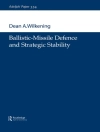Global Security Talks examines the crucial role of international security conferences in shaping global defense strategies and resolving conflicts, while acknowledging inherent limitations. These talks, from UN Security Council meetings to regional summits, serve as vital platforms for dialogue. The book argues that despite their importance, these conferences often fall short due to geopolitical realities and systemic issues, resulting in a gap between intended outcomes and actual impact.
One key insight is that divergent interests among participating states frequently hinder the implementation of agreements, challenging the assumption that dialogue alone guarantees solutions to complex security problems. The book explores the evolution of global security talks through the 20th and 21st centuries, referencing landmark events like the Congress of Vienna and summits on nuclear disarmament. It presents case studies to assess the contributions of past and present conferences to conflict prevention and arms control.
The book unfolds in three parts, beginning with theoretical underpinnings, progressing to detailed case studies, and concluding with a critical assessment offering strategies for enhancing conference effectiveness. This approach highlights the need for realistic expectations and effective mechanisms to translate dialogue into concrete action.












